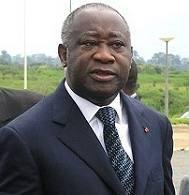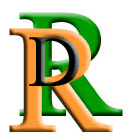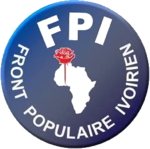
Koudou Laurent Gbagbo is an Ivorian politician who was the President of Côte d'Ivoire from 2000 until his arrest in April 2011. A historian, Gbagbo was imprisoned in the early 1970s and again in the early 1990s, and he lived in exile in France during much of the 1980s as a result of his union activism. Gbagbo founded the Ivorian Popular Front (FPI) in 1982 and ran unsuccessfully for president against Félix Houphouët-Boigny at the start of multi-party politics in 1990. He won a seat in the National Assembly of Côte d'Ivoire in 1990.
The additional member system (AMS), also known as mixed-member proportional representation (MMP) outside the United Kingdom, is a mixed electoral system with one tier of single-member district representatives, and another tier of ‘additional members’ elected to make the overall election results more proportional.
Aimé Henri Konan Bédié is an Ivorian politician. He was President of Côte d'Ivoire from 1993 to 1999, and he is currently the President of the Democratic Party of Côte d'Ivoire - African Democratic Rally (PDCI-RDA).

Côte d'Ivoire elects on national level a head of state - the president - and a legislature. The president is elected for a five-year term by the people. The National Assembly has 225 members, elected for a five-year term in single-seat constituencies. Côte d'Ivoire is a one party dominant state with the Ivorian People's Front in power. Opposition parties are allowed, but are widely considered to have no real chance of gaining power. Following a peace deal between the government and former rebels in March 2007, the next elections were planned for early 2008. These elections however, were postponed to November 2009 first, and then to early 2010.
The Movement of the Forces of the Future is a political party in Côte d'Ivoire. The MFA was founded by Innocent Anaky in December 1992.

Presidential elections were held in Ivory Coast in 2010. The first round was held on 31 October, and a second round, in which President Laurent Gbagbo faced opposition leader Alassane Ouattara, was held on 28 November 2010. Originally scheduled to be held in 2005, the vote was delayed several times due to the Ivorian Civil War and difficulties involved in the organization and preparation of the elections. A peace agreement between the government and the former rebel New Forces was signed on 4 March 2007, and in late April 2009, it was announced that the elections would be held by 6 December 2009, and that the date would be announced shortly. On 15 May 2009, the date was announced to be 29 November 2009. On 11 November, the elections were postponed again due to delays in the electoral roll. It was announced on 3 December 2009 to be held in late February or early March 2010.

A parliamentary election was held in Ivory Coast on 11 December 2011, after the presidential election which was held in late 2010. This followed a peace agreement between the government and the New Forces that was signed in March 2007. The Rally of the Republicans, the party of President Alassane Ouattara, won just under half the seats in the National Assembly.

Presidential elections were held in Ivory Coast on 22 October 2000. Robert Guéï, who headed a transitional military regime following the December 1999 coup d'état, stood as a candidate in the election. All of the major opposition candidates except for Laurent Gbagbo of the Ivorian Popular Front (FPI) were barred from standing. The Rally of the Republicans (RDR) and Democratic Party of Côte d'Ivoire – African Democratic Rally (PDCI-RCA) boycotted the election in response to the exclusion of their candidates by the Supreme Court.

General elections were held in the Central African Republic on 23 January 2011 to elect the President and National Assembly, having been postponed numerous times. Incumbent President François Bozizé was re-elected for a second term in the first round of voting, receiving 66% of the vote. The organization of the elections was plagued by difficulties, and the opposition repeatedly demanded its postponement. Ultimately it was delayed until January 2011, requiring an extension of the terms of both the President and the National Assembly.

The 2011 election to the Northern Ireland Assembly took place on Thursday, 5 May, following the dissolution of the Northern Ireland Assembly at midnight on 24 March 2011. It was the fourth election to take place since the devolved assembly was established in 1998.

The Ninth constituency for French residents overseas is one of eleven constituencies each electing one representative of French citizens overseas to the French National Assembly.

A constitutional referendum was held in Ivory Coast on 30 October 2016. Voters were asked whether they approve of a proposed new constitution. The new constitution would create a Senate, remove the nationality clause from the presidential requirements and establish the post of Vice-President. The constitution was approved by 93.42% of votes with a 42.42% turnout, as announced by the president of the Independent Electoral Commission (CEI).
The Union for Ivory Coast is political party in the Ivory Coast led by former Me SORO Brahima. It was part of the Rally of Houphouëtists for Democracy and Peace alliance in the 2011 elections, but ran independently in the parliamentary elections in 2016, where it won three seats.

General elections will be held in Ivory Coast on 31 October 2020. Incumbent President Alassane Ouattara has announced he will not run again after being president for two terms.
Affoussiata Bamba-Lamine is an Ivory Coast politician who served as Minister of Communication from December 2012 until January 2017.

The 2018 Ivorian senatorial election will be the first senatorial election in Ivory Coast and will be held on 24 March 2018.















